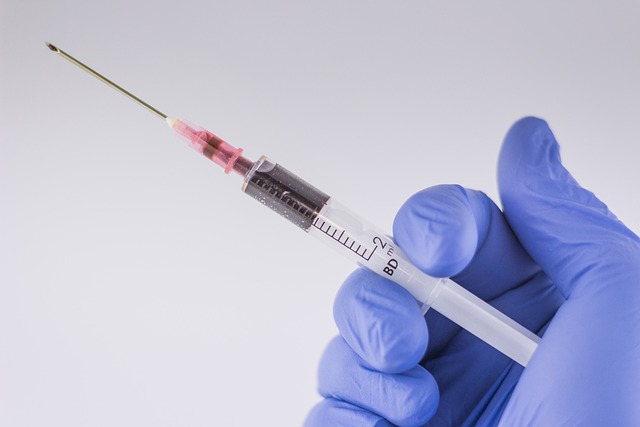Maintaining cholesterol balance is crucial for optimal health, as high 'bad' (LDL) cholesterol levels elevate heart disease and stroke risks, while 'good' (HDL) cholesterol aids in removal. The General Health Blood Test UK offers a simple yet effective way to monitor these levels, assess cardiovascular risk, and take proactive measures to improve overall well-being. Understanding test results is key: optimal total cholesterol below 5mmol/L, ideal LDL under 3mmol/L, protective HDL at or above 1mmol/L. Always consult healthcare professionals for personalized advice based on individual health profiles.
Cholesterol, often overlooked, is a crucial component of our general health. Measuring cholesterol levels through simple blood tests is an essential step towards maintaining optimal well-being, especially in the UK. This article guides you through the process, from understanding what cholesterol is and why it matters to navigating the UK’s General Health Blood Test procedures and interpreting your results effectively.
- What is Cholesterol and Why Measure It?
- Understanding Blood Tests for Cholesterol in the UK
- How to Interpret Your Cholesterol Results
What is Cholesterol and Why Measure It?
Cholesterol is a waxy, fat-like substance found in all cells in the body. It plays a crucial role in maintaining general health by aiding in the production of vitamin D, hormone development, and cell membrane structure. However, when cholesterol levels become imbalanced, it can lead to significant health issues. High levels of low-density lipoprotein (LDL) cholesterol, often referred to as ‘bad’ cholesterol, are associated with an increased risk of heart disease and stroke. Conversely, high-density lipoprotein (HDL) cholesterol, known as ‘good’ cholesterol, helps remove LDL cholesterol from the bloodstream.
Measuring cholesterol levels through a simple blood test is an essential part of maintaining general health in the UK. This general health blood test allows individuals to understand their cardiovascular risk and take proactive steps to manage their health. By checking cholesterol levels, people can identify elevated LDL or low HDL cholesterol and make necessary lifestyle changes or seek medical advice to prevent potential health complications related to high cholesterol.
Understanding Blood Tests for Cholesterol in the UK
Cholesterol levels are a key indicator of general health, and understanding how to measure them is an essential step towards maintaining a healthy lifestyle. In the UK, blood tests for cholesterol are widely available as part of general health checks. These tests provide valuable insights into your cardiovascular risk by measuring low-density lipoprotein (LDL) cholesterol, often referred to as ‘bad’ cholesterol, and high-density lipoprotein (HDL) cholesterol, known as ‘good’ cholesterol.
The General Health Blood Test UK is a common procedure where a small sample of blood is taken from your vein, usually in your arm. This sample is then analysed in a laboratory to determine the levels of LDL and HDL cholesterol. The results offer crucial information about your heart health and can help identify potential issues early on. By understanding these numbers, individuals can make informed decisions about their diet, lifestyle, and any necessary medical interventions to manage their cholesterol effectively.
How to Interpret Your Cholesterol Results
Understanding your cholesterol results is a key step in maintaining general health, especially in the UK where access to general health blood tests is widely available. Your report will typically include two main types of cholesterol: LDL (low-density lipoprotein) and HDL (high-density lipoprotein). LDL cholesterol is often referred to as ‘bad’ cholesterol as it can build up in your arteries, while HDL, or ‘good’ cholesterol, helps remove LDL from your bloodstream.
Interpretation depends on your individual results. Generally, an optimal reading for total cholesterol is below 5mmol/L. Levels between 5-7mmol/L are considered borderline high, and above 7mmol/L is high. For LDL cholesterol, a target below 3mmol/L is ideal; 3-4mmol/L is borderline, and above 4mmol/L requires attention. HDL levels of 1mmol/L or higher are considered protective, while readings below 0.9mmol/L may increase your risk of heart disease. Always discuss your results with a healthcare professional who can provide tailored advice based on your individual health profile.
Cholesterol, often referred to as a silent killer, can be effectively managed through simple and accessible General Health Blood Tests available in the UK. By understanding your cholesterol levels and interpreting the results, you empower yourself to make informed decisions for better heart health. Regular monitoring is key to preventing and managing conditions like high cholesterol, allowing you to take control of your well-being.
